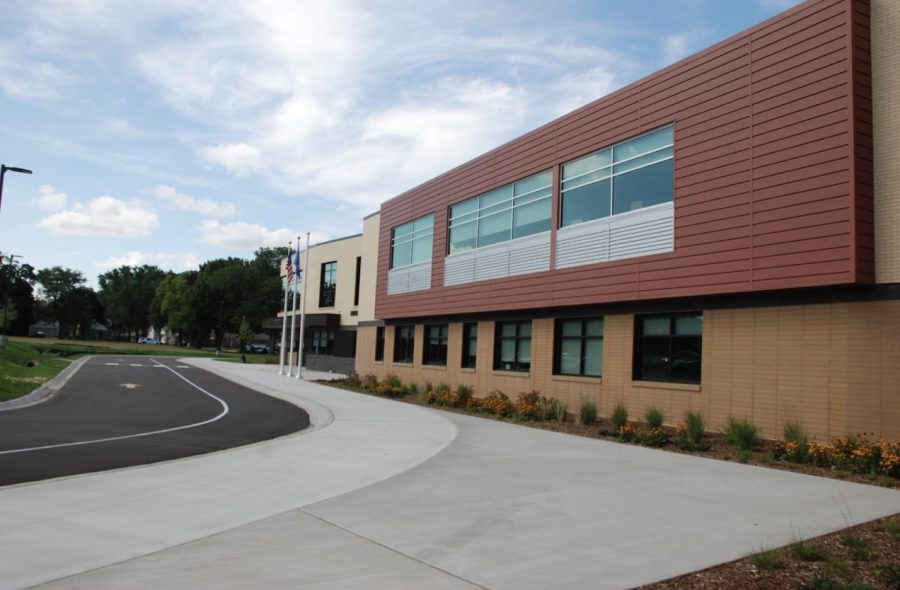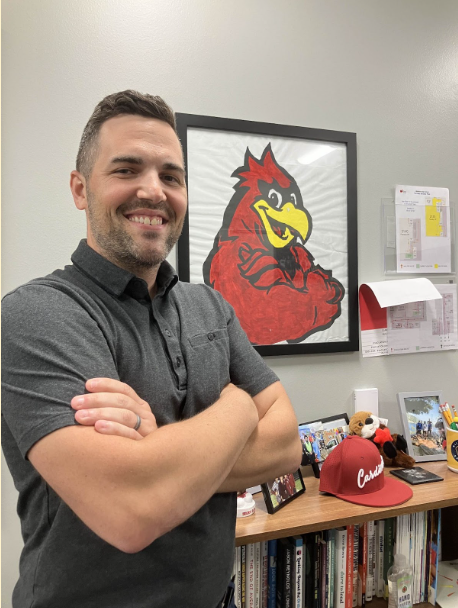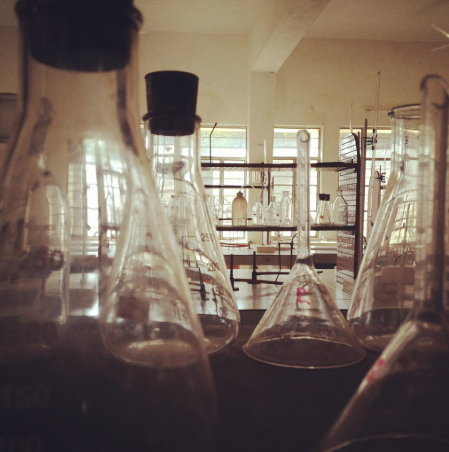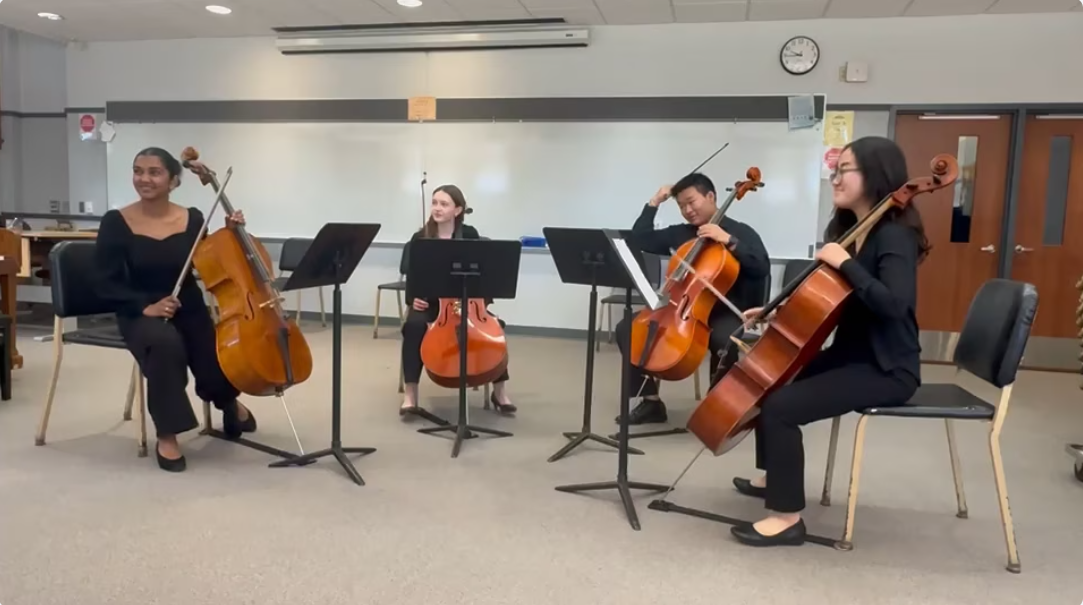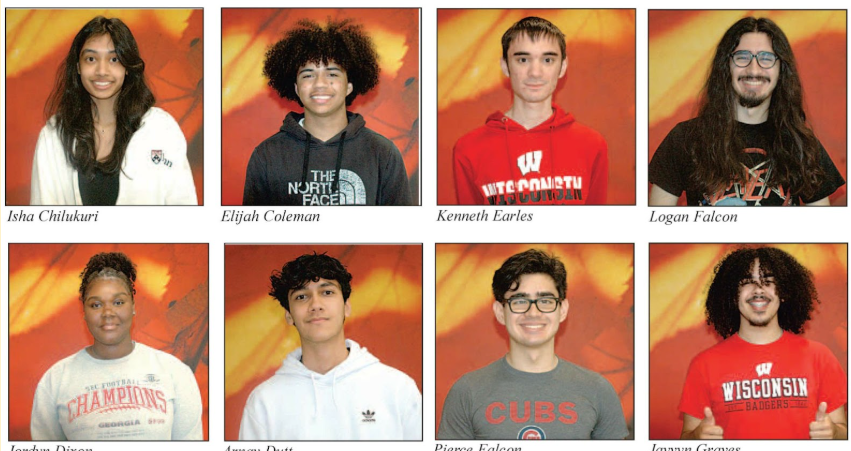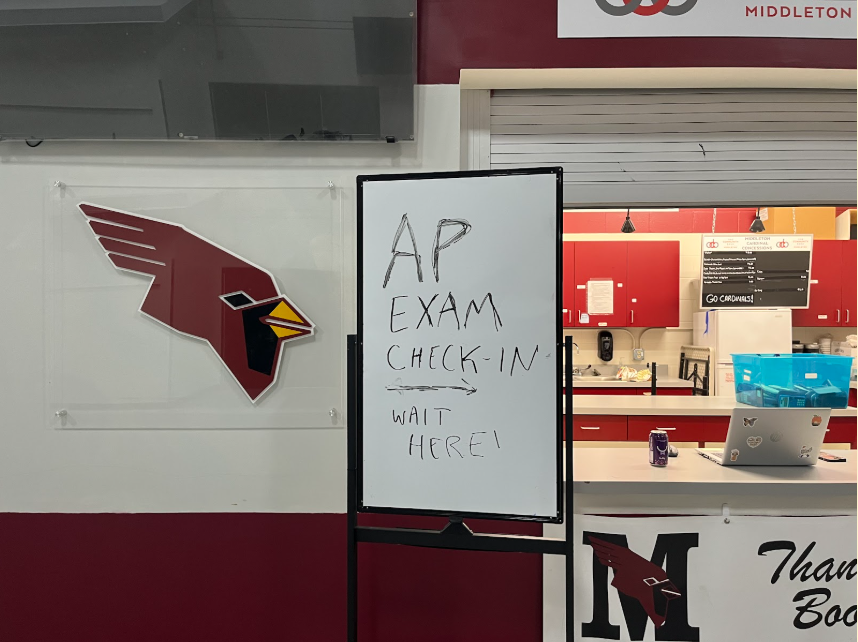Outlier or Trend? An Examination of MHS in the News
It feels like Middleton High School can’t stay out of news headlines. Are we an outlier, or are other Wisconsin public high schools experiencing the same attention?
February 26, 2023
As humans, we all experience a psychological phenomenon called the “spotlight effect.” We are wired to perceive everyone as our captive audience who notice and judge our every fault. However, for the students, staff and families of Middleton High School (MHS), many are starting to wonder if it is not all in their heads.
For better or worse, it is common to see “Middleton High School” plastered on local, state and even national news headlines. Often, our school’s image — which has long shined due to its incredible academic and athletic reputation — feels increasingly overshadowed by scandals. The narrative? MHS cannot seem to get through a semester without dealing with the next “new thing,” each more shocking than the last. Especially now, in the uncertain weeks following a police investigation of the MHS football team, many wonder if other high schools face similar issues on a regular basis — or if MHS is an outlier.
A deeper investigation into the ten largest Wisconsin Public High Schools with 2,000+ students reveals the surprising and heartening truth.
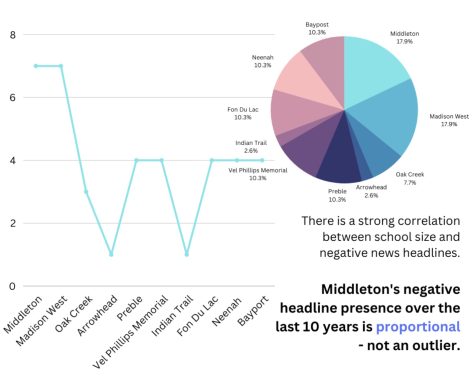
Many members of the school district assume MHS is in the news more than other schools, but not all. MHS junior Olivia Kim has already experienced two “negative headline” events in her past three years at MHS, and when asked if she assumed MHS was the news more, less or about the same as other high schools, she said, “Probably more. Maybe about the same as Madison West and Memorial, I would guess. I hear much more about things happening at other schools in Madison from people I know there.”
This assumption, however, is partially incorrect: based on research of the last ten years, Middleton’s incident rate is directly proportional to its size. MHS accounts for only 17.9 percent of all negative headlines regarding the ten largest public high schools in Wisconsin. This percentage is equal to Madison West High School, despite MHS containing almost 200 more students. In fact, many of Madison West’s scandals in recent years were similar to MHS — security threats, coach resignations and misinformed racial segregation, to name a few — while still escaping the awareness of many MHS students and their families. Simply put, MHS is not an outlier.
Yet one question remains. If MHS is going through these events at a “normal” rate, why do so many members of our community continue to believe we are an outlier? Why, since other schools are going through this same struggle, are we continuously surrounded by an attitude of shame? And how can we change this narrative to focus on reducing the rate of scandals?
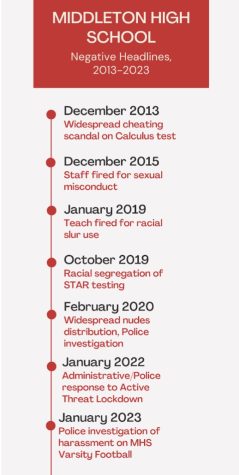
A look back on MHS’s past may provide an explanation. Over the past ten years, MHS has been the subject of seven negative headline events, many of which were shocking, painful or a source of humiliation for the school community. We often fail to appreciate that in a school the size of a small city (with almost 250 staff and 2,500 students), a certain level of friction is statistically inevitable.
While the community can recognize this, MHS is still deeply affected by each and every incident.
“It’s not surprising, but my heart still breaks,” said MHS Principal Peg Shoemaker. “How do we invest our student body in a healthy school culture when the adult role models aren’t?”
Shoemaker’s sentiment was echoed by an MHS student during an anonymous interview, who explained, “I feel like when you have a school as large as ours, it’s inevitable to have things like this happen.”
Often, it is the emotional turmoil in the aftermath of these events that can lead us to lose perspective. We become susceptible to feeling singled out in our suffering, as individuals and as a school community.
“I understand the students’ perspective, their frustration…we cannot always show them what we’re doing, the changes we’re making behind the scenes,” Shoemaker said. “I get how frustrating it is not to know the details.”
Going forward, Shoemaker imparts a hopeful message for MHS and the broader Middleton Cross-Plains Area School District: “It’s an amazing student body,” said Shoemaker. ”Rough patches will happen, but our students should be incredibly proud of their accomplishments and this school. Our teachers should be proud of our student body…and our goals should be to build trusting relationships with students as much as possible.”
Although we may always fall victim to our “spotlight effect”, it is imperative to remember that we are not alone in struggling with our history, our experiences and our school reputation. Changing the narrative about MHS in the media to a more truthful representation does not aim to erase our faults, but rather to learn from them and help each other to overcome them better in the future.



